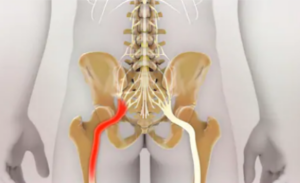12+ Morning Phlegm Hacks To Breathe Easier
Waking up to a chest full of phlegm can be a frustrating and debilitating experience, affecting not just your morning routine but your entire day. The constant coughing, the struggle to catch your breath, and the feeling of heaviness in your chest can be overwhelming. However, there are several morning phlegm hacks that can help alleviate this issue, making it easier to breathe and start your day on a positive note.
Understanding Morning Phlegm
Before diving into the solutions, it’s essential to understand why we experience morning phlegm. Phlegm is a thick, damp, and sticky substance produced by the mucous membranes in the respiratory tract. It serves as a protective mechanism, trapping dust, bacteria, and other foreign particles that enter the respiratory system, preventing them from causing infection. However, an overproduction of phlegm can be a sign of an underlying issue, such as a respiratory infection, allergies, or a chronic condition like asthma or COPD.
12+ Morning Phlegm Hacks
1. Stay Hydrated
Drinking plenty of water helps to thin out mucus, making it easier to expel. Aim for at least eight glasses of water a day, and consider having a glass of water as soon as you wake up to help loosen up any overnight accumulation of phlegm.
2. Use a Humidifier
Dry air can exacerbate phlegm production. Running a humidifier in your bedroom at night can help keep your airways moist, reducing the viscosity of phlegm and making it easier to clear out in the morning.
3. Saline Rinse
Rinsing your nasal passages with a saline solution can help clear out excess mucus and reduce phlegm production. Use a neti pot or a squeeze bottle with a saline rinse, especially in the morning to start your day feeling clearer.
4. Dietary Adjustments
Certain foods can help alleviate phlegm. Warm, spicy foods and drinks, such as ginger tea or chili, can help loosen and clear mucus. Additionally, foods high in antioxidants and omega-3 fatty acids, like berries and fatty fish, can help reduce inflammation.
5. Elevate Your Head
Sleeping with your head slightly elevated can help prevent mucus from accumulating in your chest overnight. Use extra pillows to keep your head raised, facilitating easier breathing and reducing morning congestion.
6. Exercise
Regular physical activity can help improve lung function and increase circulation, which can aid in clearing out mucus. However, avoid strenuous exercise if you’re experiencing severe respiratory issues.
7. Avoid Irritants
Exposure to smoke, dust, and strong chemicals can irritate your respiratory system and increase phlegm production. If possible, avoid these irritants, especially in your home, to reduce morning phlegm.
8. Use a Warm Compress
Applying a warm compress to your chest can help loosen up phlegm, making it easier to cough up. Soak a towel in warm water, wring it out, and apply it to your chest for a few minutes.
9. Practice Deep Breathing Exercises
Deep, controlled breathing can help expand your lungs and make it easier to expel phlegm. Practice deep breathing exercises, especially in the morning, to help clear your airways.
10. Consider Medication
If your morning phlegm is persistent and interferes with your daily activities, consider consulting with a healthcare professional about over-the-counter or prescription medications that can help reduce phlegm production.
11. Quit Smoking
Smoking is a significant contributor to respiratory issues, including increased phlegm production. Quitting smoking can dramatically improve lung health and reduce morning phlegm.
12. Monitor and Manage Underlying Conditions
If you have an underlying respiratory condition, such as asthma or COPD, it’s crucial to manage it effectively. Follow your treatment plan, and consider adjustments if you notice an increase in morning phlegm.
Additional Tips for Breathing Easier
- Avoid Overexertion: If you’re feeling congested, avoid strenuous activities that can exacerbate the condition.
- Use an Air Purifier: Keeping the air in your home clean can reduce irritants that might worsen phlegm production.
- Get Enough Rest: Adequate sleep is essential for overall health, including respiratory function. Aim for 7-9 hours of sleep per night.
Conclusion
Morning phlegm can be a challenging issue to deal with, but with the right strategies, it’s possible to breathe easier and start your day feeling more refreshed. From staying hydrated and using a humidifier to making dietary adjustments and practicing deep breathing exercises, there are numerous hacks that can help alleviate morning phlegm. Remember, if your symptoms persist or worsen, it’s always best to consult with a healthcare professional for personalized advice and treatment.
What are the most common causes of morning phlegm?
+The most common causes of morning phlegm include respiratory infections, allergies, chronic conditions like asthma or COPD, and lifestyle factors such as smoking and exposure to irritants.
How can I prevent morning phlegm?
+Prevention strategies include staying hydrated, avoiding irritants, quitting smoking, managing underlying conditions, and practicing good hygiene to reduce the risk of infections.
When should I seek medical attention for morning phlegm?
+You should seek medical attention if your morning phlegm is persistent, severe, or interferes with your daily activities, or if you experience symptoms like difficulty breathing, chest pain, or fever.

